第81章
Arrival at Madrid - Maria Diaz - Printing of the Testament -My Project - Andalusian Steed - Servant Wanted - An Application -Antonio Buchini - General Cordova - Principles of Honour.
On my arrival at Madrid I did not repair to my former lodgings in the Calle de la Zarza, but took others in the Calle de Santiago, in the vicinity of the palace.The name of the hostess (for there was, properly speaking, no host) was Maria Diaz, of whom I shall take the present opportunity of saying something in particular.
She was a woman of about thirty-five years of age, rather good-looking, and with a physiognomy every lineament of which bespoke intelligence of no common order.Her eyes were keen and penetrating, though occasionally clouded with a somewhat melancholy expression.There was a particular calmness and quiet in her general demeanour, beneath which, however, slumbered a firmness of spirit and an energy of action which were instantly displayed whenever necessary.A Spaniard and, of course, a Catholic, she was possessed of a spirit of toleration and liberality which would have done honour to individuals much her superior in station.In this woman, during the remainder of my sojourn in Spain, I found a firm and constant friend, and occasionally a most discreet adviser: she entered into all my plans, I will not say with enthusiasm, which, indeed, formed no part of her character, but with cordiality and sincerity, forwarding them to the utmost of her ability.She never shrank from me in the hour of danger and persecution, but stood my friend, notwithstanding the many inducements which were held out to her by my enemies to desert or betray me.Her motives were of the noblest kind, friendship and a proper feeling of the duties of hospitality; no prospect, no hope of self-interest, however remote, influenced this admirable woman in her conduct towards me.Honour to Maria Diaz, the quiet, dauntless, clever Castilian female.I were an ingrate not to speak well of her, for richly has she deserved an eulogy in the humble pages of THE BIBLE IN SPAIN.
She was a native of Villa Seca, a hamlet of New Castile, situated in what is called the Sagra, at about three leagues'
distance from Toledo: her father was an architect of some celebrity, particularly skilled in erecting bridges.At a very early age she married a respectable yeoman of Villa Seca, Lopez by name, by whom she had three sons.On the death of her father, which occurred about five years previous to the time of which I am speaking, she removed to Madrid, partly for the purpose of educating her children, and partly in the hope of obtaining from the government a considerable sum of money for which it stood indebted to her father, at the time of his decease, for various useful and ornamental works, principally in the neighbourhood of Aranjuez.The justness of her claim was at once acknowledged; but, alas! no money was forthcoming, the royal treasury being empty.Her hopes of earthly happiness were now concentrated in her children.The two youngest were still of a very tender age; but the eldest, Juan Jose Lopez, a lad of about sixteen, was bidding fair to realize the warmest hopes of his affectionate mother; he had devoted himself to the arts, in which he made such progress that he had already become the favourite pupil of his celebrated namesake Lopez, the best painter of modern Spain.Such was Maria Diaz, who, according to a custom formerly universal in Spain, and still very prevalent, retained the name of her maidenhood though married.
Such was Maria Diaz and her family.
One of my first cares was to wait on Mr.Villiers, who received me with his usual kindness.I asked him whether he considered that I might venture to commence printing the Scriptures without any more applications to government.His reply was satisfactory: "You obtained the permission of the government of Isturitz," said he, "which was a much less liberal one than the present.I am a witness to the promise made to you by the former ministers, which I consider sufficient.You had best commence and complete the work as soon as possible, without any fresh application; and should any one attempt to interrupt you, you have only to come to me, whom you may command at any time." So I went away with a light heart, and forthwith made preparation for the execution of the object which had brought me to Spain.
I shall not enter here into unnecessary details, which could possess but little interest for the reader; suffice it to say that, within three months from this time, an edition of the New Testament, consisting of five thousand copies, was published at Madrid.The work was printed at the establishment of Mr.Borrego, a well-known writer on political economy, and proprietor and editor of an influential newspaper called El Espanol.To this gentleman I had been recommended by Isturitz himself, on the day of my interview with him.That unfortunate minister had, indeed, the highest esteem for Borrego, and had intended raising him to the station of minister of finance, when the revolution of the Granja occurring, of course rendered abortive this project, with perhaps many others of a similar kind which he might have formed.
The Spanish version of the New Testament which was thus published, had been made many years before by a certain Padre Filipe Scio, confessor of Ferdinand the Seventh, and had even been printed, but so encumbered by notes and commentaries as to be unfitted for general circulation, for which, indeed, it was never intended.In the present edition, the notes were of course omitted, and the inspired word, and that alone, offered to the public.It was brought out in a handsome octavo volume, and presented, upon the whole, a rather favourable specimen of Spanish typography.
The mere printing, however, of the New Testament at Madrid could be attended with no utility whatever, unless measures, and energetic ones, were taken for the circulation of the sacred volume.